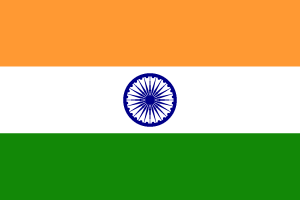Total Population: 1.4 Billion
Total Children under the age of 18: 400 million
The Situation of Children in India
40% of India's population is below the age of 18 years old, which at 400 million is the world's largest child population. Less than half of India's children between the ages of 6 and 14 go to school.
The Challenges:
Most children without parental care have living family members, including at least one parent or another relative. Many children in orphanages are not orphans and have at least one parent or another relative, and most are in kinship care or family-based alternative care. The immediate and long-term damage caused by family separation and unsuitable alternative care, particularly in institutions, is well documented. Institutions are often characterized by inherently harmful living arrangements. Children may experience forced cohabitation and fixed routines not tailored to their individual needs. They are frequently deprived of the ability to make choices that suit their best interests. Every 6 seconds, a child is losing a parent or grandparent caregiver as a result of COVID-19. The solution is family strengthening, not orphanages.
India Without Orphans works towards:
All children have the right to grow up in an environment that supports their physical, psychological, social, and emotional development. NGO and civil society work with governments and partners to develop policies and programs to prevent unnecessary family-child separation and protect children deprived of parental care. We focus on the root causes of family-child separation, while strengthening child protection systems and supporting children's transition from institutional care to the community- and family-based alternative care.
In particular, our approach is based on WWO Roadmap to:
- Accelerate efforts to end the institutionalization of children, through targeted programming and advocacy.
- Strengthen families to prevent family-child separation, and improve child protection and welfare.
- Redirect resources and prioritize family-based alternative care within communities.
- Improve data collection and reporting systems for children without parental care.
Other Information about Orphaned and Vulnerable Children and Family Care in India
Better Care Network Information on Family-Based Care in India
More information for prayer at Operation World
"Source: UNICEF, Humanium, SOS Children's Villages International".
